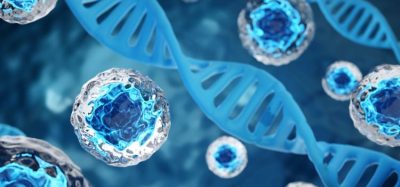Supply of biosimilars and generics with Adrian van den Hoven, Medicines for Europe
Posted: 25 June 2021 | Hannah Balfour (European Pharmaceutical Review) | No comments yet
In this interview, Adrian van den Hoven, Director General of Medicines for Europe, discusses all things supply of generic and biosimilar medicines for the continent. Also, in a bonus video, Adrian discusses challenges disrupting access to biosimilars and generics in Europe.
Supply of medicines has become a critical issue in the COVID-19 pandemic. To find out how the European market coped with the pandemic, how it is recovering and what it can learn from the global crisis, I interviewed Adrian van den Hoven, the Director General of Medicines for Europe. In a second, bonus video, we also discuss the current challenges facing access to biosimilars and generics in Europe, it can be found at the bottom of this page.
Medicines for Europe is an industry group comprising three core segments – generics, biosimilars and, the most recent addition, value added medicines.
In terms of COVID-19 impact, Adrian described how the disruption to manufacturing in China was anticipated to cause large disturbances in the European medicines supply chain, as were the surges in demand. According to Adrian, the pandemic resulted in surges in demand for almost all their medicines – and critical care medicines in particular. However, despite the challenges, quick, collaborative action by the industry and other stakeholders; the existence of stockpiles; and the level of active pharmaceutical ingredient and final product manufacturing remaining on the continent, meant major disruptions were largely avoided.
Adrian highlighted that to a certain extent lessons from the COVID-19 pandemic can also be applied to smaller, more commonly occurring crises, such as natural disasters or the refugee crisis. One of the key takeaways from COVID-19, in terms of supply of medicines, said Adrian, is being able to assess demand (both short and long term) and prioritise movements of products to patients who are in need.
We also discussed how the supply chain for generics and biosimilars may change moving forward. Adrian explained, that the impact will be primarily on the biologics market, rather than synthesised chemical drugs. “Historically, generics have been about 80-85 percent of the competition on the market, but that is going to be closer to around 50/50, so 50 percent for biosimilars and 50 percent for generic medicines,” said Adrian. He added though that the adoption of biosimilars could be complicated, since it requires a pro-active policy framework that promotes their competition and encourage prescribers to also prescribe biosimilars.
In terms of what the sector may look like in the next five to 10 years, Adrian said there is a wave of new greenfield factories for biologics being built that will come online in the future. He also explained that the European Union is talking about reversing the current trend of Europe becoming less competitive to other generic producers (such as India and China) and re-establishing the continent as a leading producer of generic APIs and finished dosage forms. This, he said, will be encouraged through the COVID-19 recovery fund that aims to support and promote pharmaceutical production and API manufacture in Europe.
To find out more about other potential areas of change, please watch the video.
BONUS VIDEO: Access to biosimilars and generics with Adrian van den Hoven, Medicines for Europe
Adrian also explained some of the current challenges facing access to biosimilars and generics in Europe with me. The discussion includes comment on pricing strategies that are causing pockets of non-competition and low uptake, such as those in Greece and Eastern Europe. Adrian also touches on Medicine for Europe’s work to combat the issues.
Learn more about European medicines supply in our podcast!
Episode 1 discussed current and future European pharmaceutical supply chains with Richard Daniell at Teva Pharmaceuticals.
Related topics
Biopharmaceuticals, Biosimilars, Distribution & Logistics, Drug Supply Chain, Generics, Industry Insight, Regulation & Legislation, Supply Chain, Sustainability, Therapeutics








